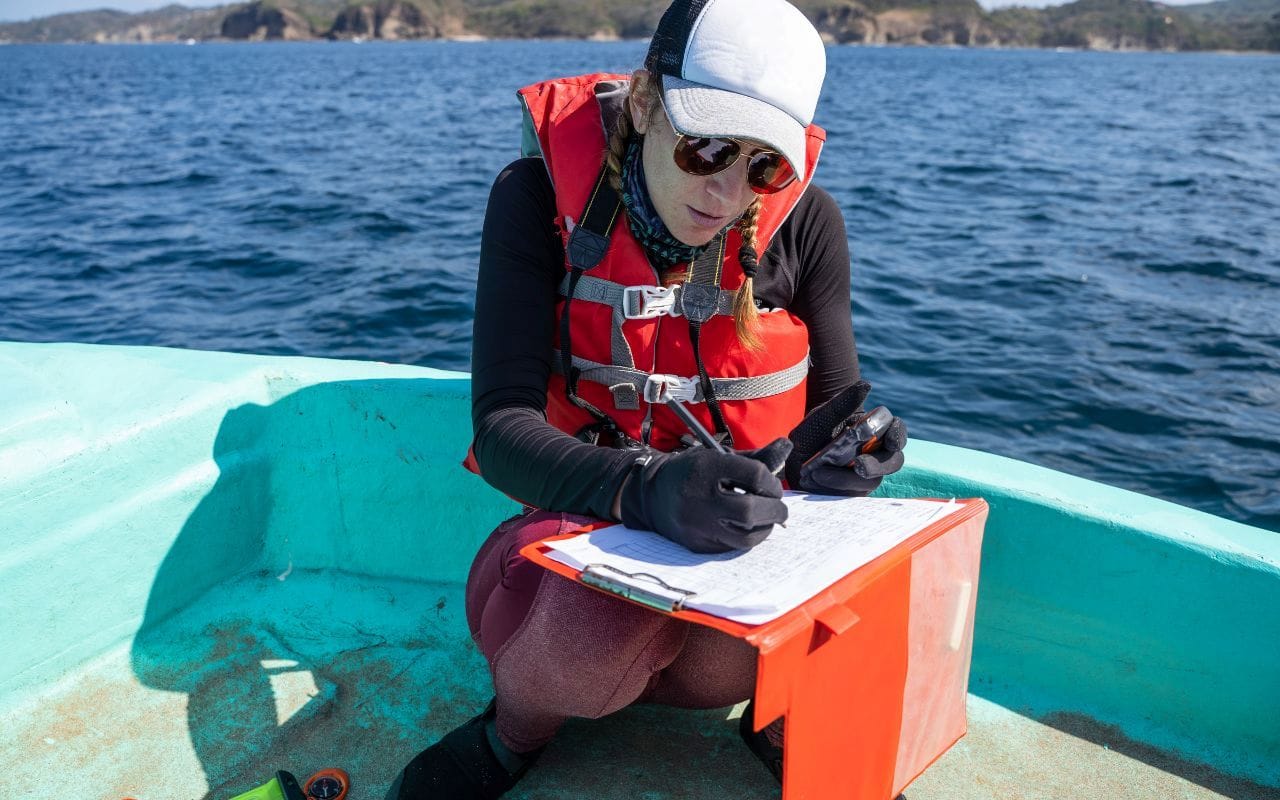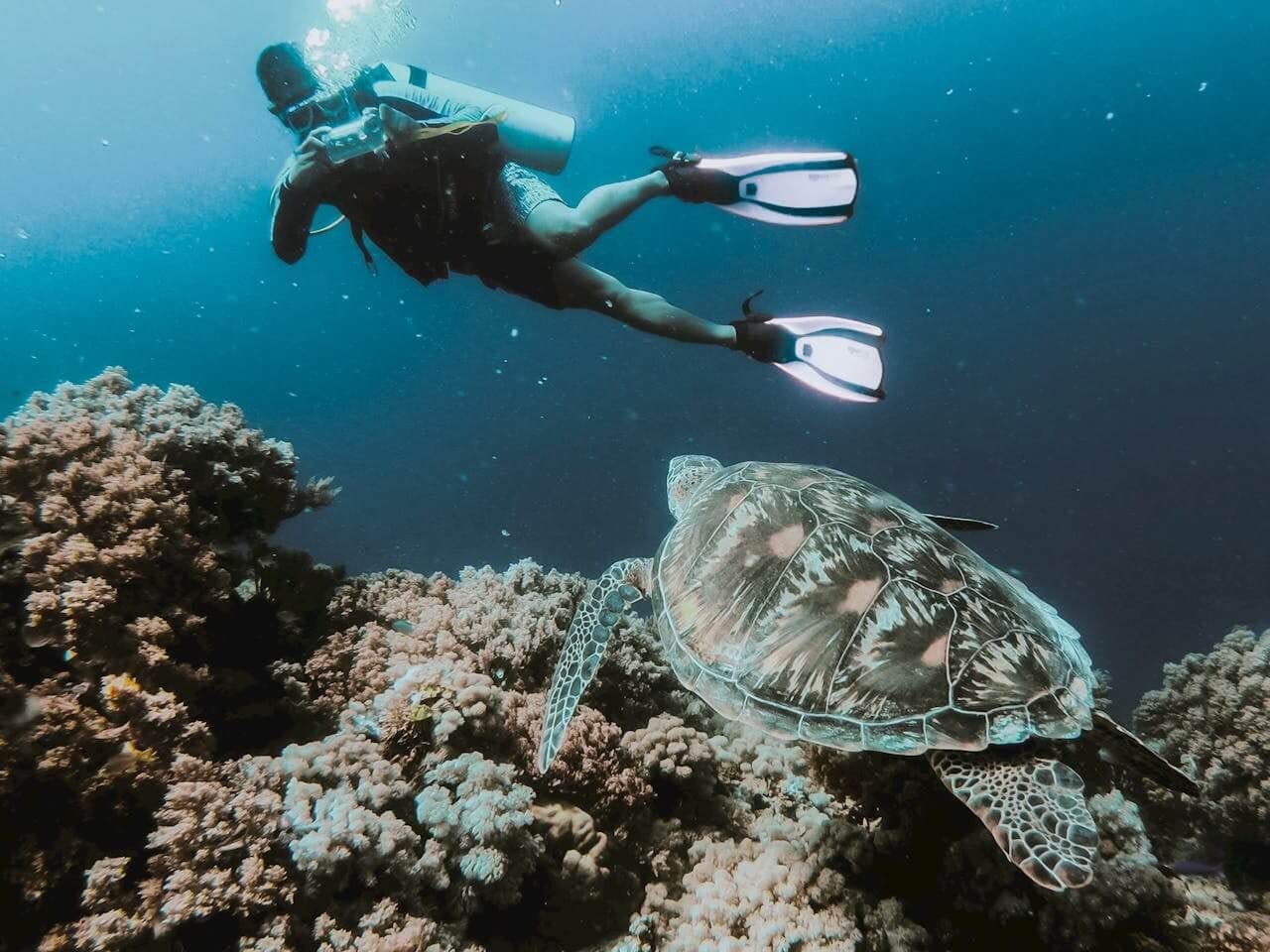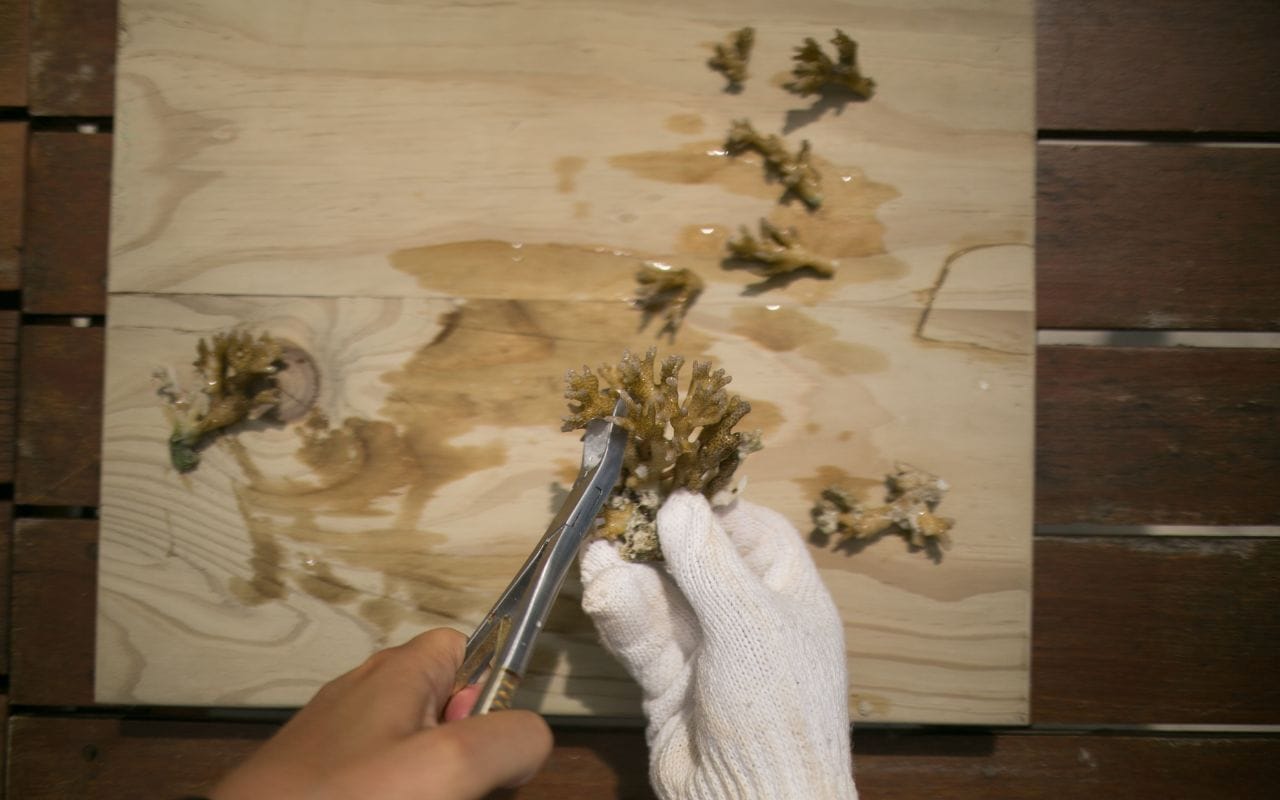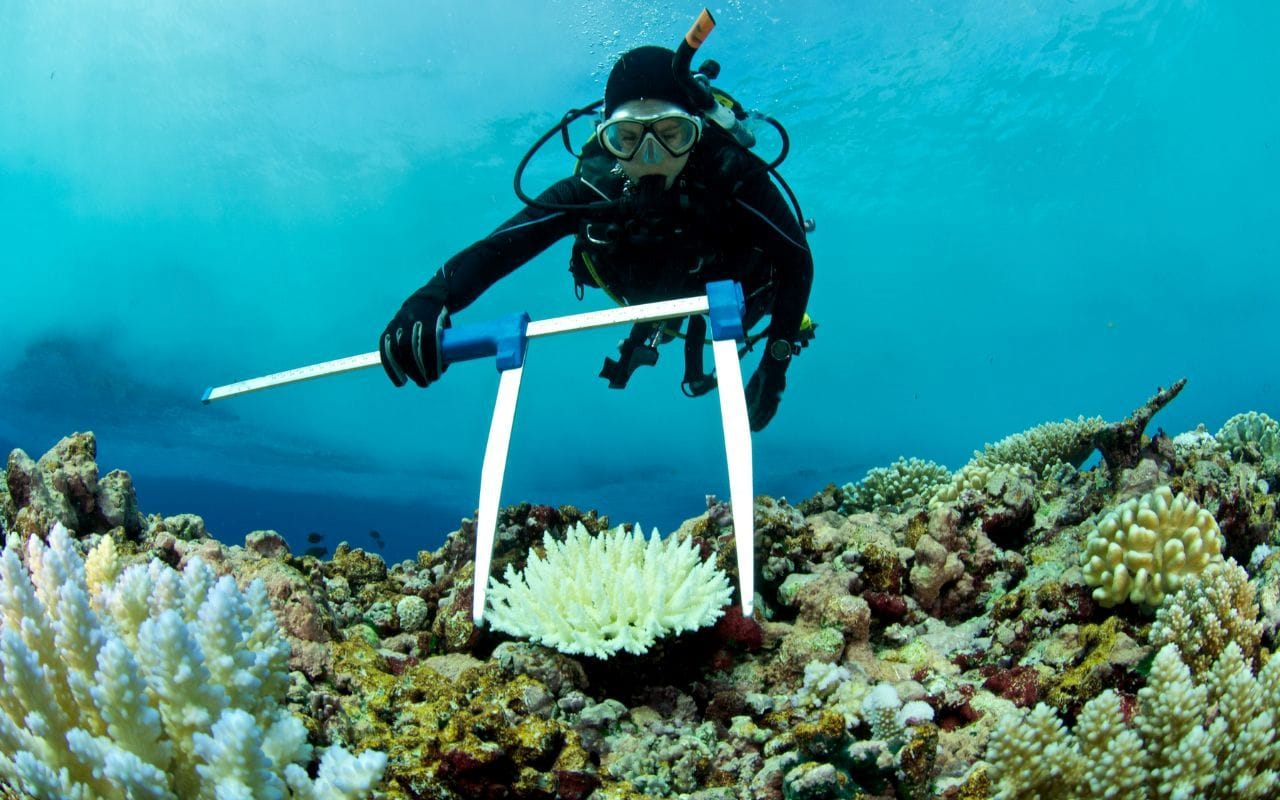Best Colleges for Marine Biology in the U.S. in 2025
Did you know only 5% of the ocean has been explored? That's right, only 5%! You'd think with the number of bodies of water surrounding the country, as well as the rest of the world, that science would've made some headway by now, but those waters run deep, which is why the study of marine biology is so important.
The water is such an unknown territory that even the parts of the ocean scientists have explored are still hard to unravel. When it comes to pursuing a career in marine biology, selecting the right school is crucial.
With so many institutions available, it's important to consider factors like accreditation, curriculum, research opportunities, and international recognition when choosing the right school.
Today, I'm going to discuss marine biology, why it's important, what to look for when scouting marine biology programs, and go over some of the best schools for a marine biology student, both in the United States and around the world.
I will also discuss the career prospects in this field and its emerging trends. So, if you're a wildlife and ocean enthusiast, look no further. Here is my guide through the world of marine biology!
Create a Bold.org profile and use the scholarship search feature to access hundreds of exclusive scholarships for college students.
What Is Marine Biology?
For marine biology students, it's important to understand what marine biology is all about. Marine biology is the scientific study of living organisms in marine environments. It involves examining the biological process of marine creatures, their behaviors, interactions, and adaptations to their environment. By studying marine biology, researchers gain insights into the depths of the ocean.
Marine biology is the study of organisms and ecosystems in the world's oceans and other bodies of water. It offers a wide range of disciplines, including marine ecology, oceanography, marine mammalogy, and marine microbiology.
Marine biologists play a key role in understanding and conserving marine life. They conduct research, collect and analyze data, and study the impact of human activities on marine ecosystems. With their knowledge and expertise, marine biologists contribute to the development of sustainable practices and policies to protect our oceans.
Get Matched to Thousands of Scholarships
Create your Bold.org profile to access thousands of exclusive scholarships, available only on Bold.org.
Create Free ProfileImportance of Marine Biology
But why is marine biology so important? Easy. It helps us understand the complexities between underwater organisms and their marine habitats.
Marine biology also provides valuable insights into the health of our oceans, the impact of climate change, and the ongoing conservations on marine species.
Marine biologists contribute to the development of sustainable aquaculture. They use science to discover new medicines and ways to protect endangered species. One area of marine biology that has gained significant attention in recent years is the study of coral reefs.
Coral reefs are diverse and vibrant ecosystems that support a vast array of marine life. They are often referred to as the "rainforests of the sea" due to their high biodiversity, but coral reefs are under threat from various factors, including climate change, pollution, and overfishing.
Marine biologists are the ones at the forefront of coral reef research, studying the intricate relationships between corals, fish, and other organisms that inhabit these fragile ecosystems. By understanding the biology and ecology of coral reefs, scientists can develop strategies to protect and restore these vital habitats.
Create Your Free Profile to Apply for Marine Biology Scholarships Today!
Factors to Consider When Choosing a Marine Biology School
Embarking on a journey in the marine sciences and biology requires careful consideration. Choosing the right school can make or break your education, especially when it comes to marine biology studies. It can significantly impact your career prospects and academic experience, so here are some things to consider when scouting different institutions:
Accreditation and Reputation
First and foremost is accreditation. Accreditation ensures that your institution of choice meets the required standards of education and provides quality programs. It not only validates the quality of education provided by marine biology quarter, but also ensures that the curriculum meets industry standards, equipping students with the necessary knowledge and skills to thrive in the field.
You also want to look into a school's reputation. The reputation of a college or school, like faculty expertise and research output, can help you gauge its standing in the field of marine biology.
Curriculum and Specializations
Something else to consider is curriculum and specializations. Reviewing a school's curriculum and available specializations is key to determining if the school aligns with your interests and career goals. Look for programs that offer a comprehensive range of marine biology courses, fieldwork opportunities, and access to advanced research facilities.
Research Opportunities
An excellent marine biology program should align with your career goals and provide research opportunities for both undergraduate and graduate students. Research experience not only enhances your understanding but also increases your chances of securing internships, scholarships, and future job prospects.
It's important to get involved in research opportunities within the marine biology field and during your studies. Don't underestimate what doors can open and lead you to new groundbreaking discoveries and advancements in the understanding of marine life.
From conducting field studies to collaborating with esteemed researchers, engaging in research can help create critical thinking skills and a deeper appreciation for the complexities of marine ecosystems.

Top Marine Biology Schools in the United States
Now that we've covered our basis with the importance of marine biology and what to look for when scouting schools, let's explore some of the top marine biology colleges and schools in the United States:
Overview of Top Schools
1. Scripps Institution of Oceanography - Located in California, Scripps is known for its cutting-edge research and world-class faculty. This institution offers various undergraduate and graduate programs in marine biology and oceanography.
Its program gives students the opportunity to conduct fieldwork in diverse marine environments, from coastal ecosystems to deep-sea habitats. Not to mention, the institution's research centers and advanced laboratories provide a hands-on learning experience for aspiring marine biologists.
2. Woods Hole Oceanographic Institution - Woods Hole is a leading center for marine research and education, with state-of-the-art facilities and collaborations with prestigious organizations.
Students at Woods Hole benefit from mentorship by renowned marine scientists and have access to cutting-edge technology for studying marine life. With Woods Hole being located in Massachusetts, the coast provides easy access to the Atlantic Ocean, providing the perfect environment for research and exploration.
3. University of Miami - With its proximity to diverse marine ecosystems, the University of Miami offers excellent opportunities for hands-on research and fieldwork.
The Rosenstiel School of Marine and Atmospheric Science is particularly notable for its interdisciplinary approach to marine biology, incorporating aspects of atmospheric science and environmental policy. Students at the University of Miami have the chance to participate in conservation projects and marine expeditions.
Now, keep in mind these are just my top 3 choices of marine biology schools. Other schools include:
- California State University
- Boston University
- Northeastern University
- The University of Tampa
- Texas A&M University
- Eckerd College
- University of Maine
- Oregon State University
- Stony Brook University
- Auburn University
And in no particular order! Each school offers pristine programs with some of the leading educators in marine biology. With some research on your school(s) of choice, you will be one step closer to finding the best marine science program for you.
Unique Features of Each School
Scripps Institution of Oceanography stands out for its innovative research in areas such as climate change and marine geology. The institution's partnerships with government agencies and environmental organizations provide students with real-world experience in addressing pressing marine issues.
Woods Hole Oceanographic Institution provides students with access to advanced research vessels and laboratories, allowing them to study marine ecosystems up close. The institution's emphasis on collaboration and interdisciplinary research prepares students for careers in marine science and conservation.
The University of Miami offers a renowned marine biology department with specialized programs in marine conservation. This program allows students to take advantage of its unique location in South Florida, where students are surrounded by ocean life. Students can engage in research on coral reefs, marine biodiversity, and ocean health, contributing to global efforts in marine conservation.

Top Marine Biology Schools Around the World
The United States isn't the only country with top-notch institutions for marine biology. Marine biology is a global field, and there are outstanding schools outside the United States, as well. Let's talk about them.
Overview of International Schools
- James Cook University - Located in Australia, JCU is known for its prestigious marine biology degree programs and access to the Great Barrier Reef, providing students with unparalleled research opportunities.
- University of Queensland - Another Australian institution, the University of Queensland offers world-class marine biology programs, focusing on coral reef ecosystems, marine ecology, and conservation.
- University of Plymouth - Located in the United Kingdom, the University of Plymouth provides excellent marine biology programs, emphasizing marine science, major sustainable fisheries, marine conservation, and marine animal physiology.
- University of Otago - Located in New Zealand, the University of Otago offers a strong marine biology program and biological oceanography studies with a focus on Antarctic marine ecosystems. Students have the opportunity to conduct research in some of the most pristine marine environments on the planet.
Whether you choose to study marine biology in the Southern Hemisphere, with a particular emphasis on the impact of climate change on Antarctic marine life, or want access to research opportunities in the Pacific Ocean, you want to make sure your choice of school supports hands-on experience in studying marine biodiversity and oceanography.

Career Prospects in Marine Biology
Graduating from a reputable marine science program opens up a world of exciting career opportunities, as well as insights. Believe it or not, marine science is a diverse field that offers a wide range of job opportunities for graduates. But what exactly can you do as a marine biologist?
As a marine biologist, you can work in various marine biology fields like research institutions, government agencies, conservation organizations, and educational institutions.
Whether you are interested in studying marine ecosystems, conserving marine species, or exploring the depths of the ocean, there is a niche for you in this dynamic field. It may take some time to find your path, but you can find yourself conducting fieldwork, analyzing data, or educating the public along the way.
Check out these exclusive science scholarships to maximize your financial aid!
Future Trends in Marine Biology
As our understanding of the ocean continues to deepen, new opportunities and challenges arise. The future of marine biology lies in emerging fields like marine biotechnology, marine genetics, and marine spatial planning.
And like the ocean, the more these fields of study go unexplored, the more the need for marine biologists to tackle issues related to climate change and the health of our oceans will continue to grow. Technological advancements and increasing global awareness of marine issues further push the field of marine biology to evolve.
Marine biologists are now using cutting-edge tools like DNA sequencing and remote sensing to study marine organisms and ecosystems in ways that were not possible before. This approach is revolutionizing our way of understanding the ocean and opening up new avenues for research and conservation.
Whichever way your education takes you, choosing the right marine biology school is the first step towards a fulfilling successful career. Remember to consider factors that matter most to you whether that be curriculum or research opportunities, do your research on each school of choice to make the most informed decision possible.
With the right education and passion for marine biology, you can contribute to the conservation and sustainable management of our oceans for generations to come.

Frequently Asked Questions About Best Marine Biology Schools
Why is marine biology important?
Marine biology isn't just the study of water life. It is an entire world of underwater ecosystems that teaches us more and more about ocean sciences and other bodies of water.
Marine biology helps people understand water organisms and environmental science, essentially providing us with a guide on how to perceive the world of any marine environment. Without marine biology and biologists, we wouldn't know about certain sea animals, their behaviors, etc.
What marine biology school is best for me?
The best marine biology school for you should align with your ideals and future career goals. You want to make sure that your program offers hands-on learning and a curriculum that covers all topics related to wild sea life and isn't afraid to get its students involved in the marine biology community.
Be sure to do your research on each school and program to know what to expect. Your school of choice should help push you deeper into your field, as well as lead you to future successes.
What kind of job can you get with a degree in marine biology?
Marine biology offers students and future professionals an array of different career paths, like conducting fieldwork, analyzing data, and educating the public. If you're passionate about conserving marine species and exploring the depths of the ocean, you can't go wrong. Get your foot through the door by starting with the right education.
Access essential insights for marine biology school in our Scholarship Blog. You'll be sure to find practical tips and guidance to enhance your educational journey, as well as exclusive scholarships to apply for.

About Chanelle
Chanelle is a dedicated and seasoned writer, editor, and researcher. She’s familiar with college admissions, finding and applying for scholarships, and the financial aid process.
She graduated from the University of South Florida with a major in English, Creative Writing with a specialization in Technical Writing.
Experience
Chanelle has over a decade of experience in the writing industry, specializing in blog writing, SEO writing, editing, translations, corporate writing, and various forms of creative writing. She founded and operated Femme Feature Magazine, an online and print publication dedicated to celebrating women in all corners of the creative field. An avid reader, Chanelle is constantly seeking refined and innovative ways to tell her stories. Writing is her foremost passion, and she is always on the lookout for her next narrative adventure.
Since joining the Bold.org team in 2023, Chanelle has brought her enthusiasm for merging the writing and digital worlds. She is dedicated to assisting students and young adults in navigating their educational and professional journeys.
Chanelle's unwavering commitment to her craft and her dedication to helping others shine through in her work. Leveraging her personal and professional experiences, she provides invaluable support to students, empowering them to achieve their goals and realize their potential.
Quote from Chanelle
“There is always a way to say the same thing over and over again. You just have to be creative and think outside the box.”